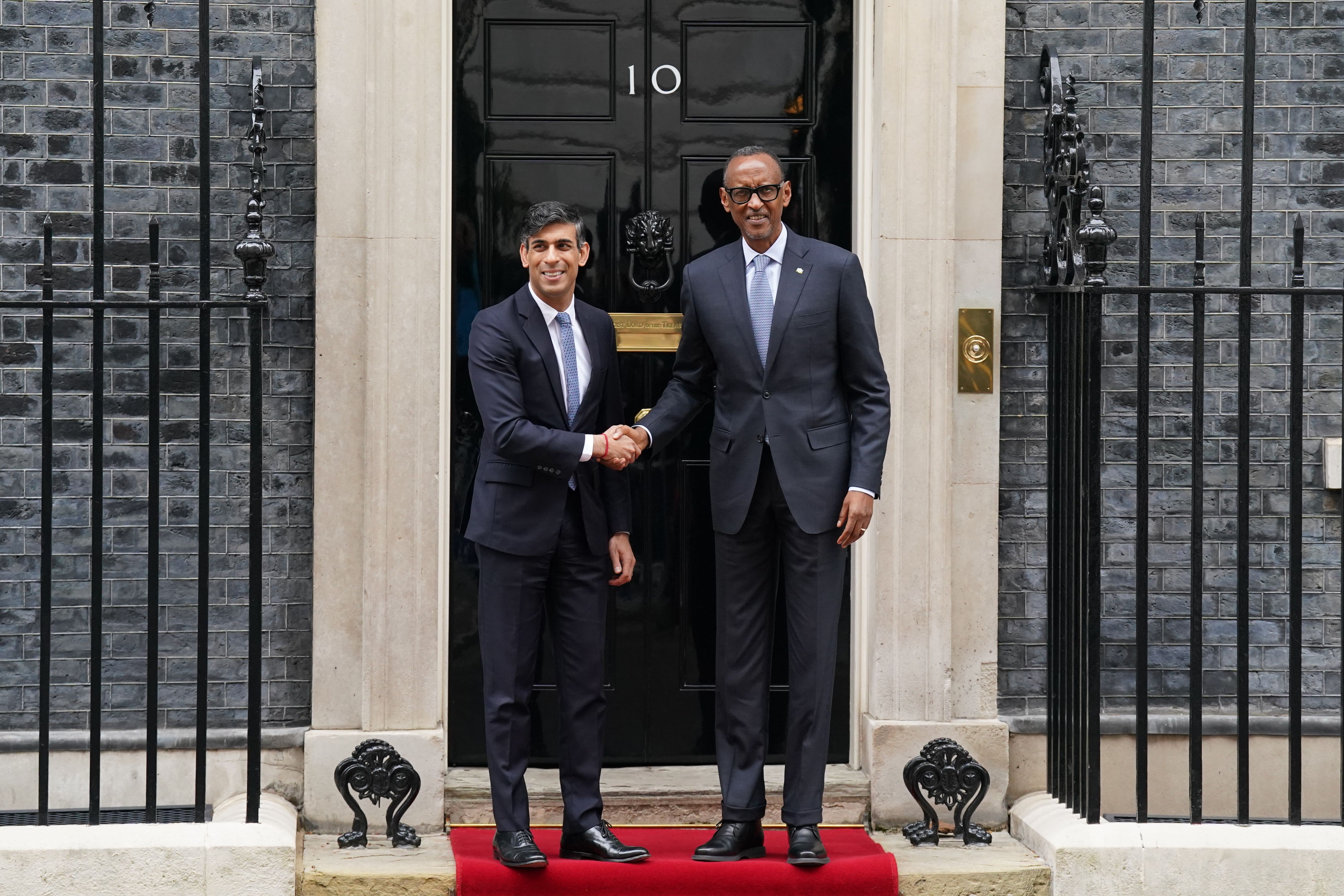Rwanda scheme could cost almost £5bn as Rishi Sunak eyes more countries for returns agreements
The Rwanda bill is expected to be signed into law at the end of this week after months of roadblocks and controversies
Your support helps us to tell the story
From reproductive rights to climate change to Big Tech, The Independent is on the ground when the story is developing. Whether it's investigating the financials of Elon Musk's pro-Trump PAC or producing our latest documentary, 'The A Word', which shines a light on the American women fighting for reproductive rights, we know how important it is to parse out the facts from the messaging.
At such a critical moment in US history, we need reporters on the ground. Your donation allows us to keep sending journalists to speak to both sides of the story.
The Independent is trusted by Americans across the entire political spectrum. And unlike many other quality news outlets, we choose not to lock Americans out of our reporting and analysis with paywalls. We believe quality journalism should be available to everyone, paid for by those who can afford it.
Your support makes all the difference.The Rwanda scheme could cost the UK almost £5 billion, leaked documents have revealed, as the government begins discussions about further returns deals with four different countries.
The UK-Rwanda treaty - which is not yet signed into law - would see the East African nation take as many as 30,000 asylum seekers in the first five years at a cost of £4.5 billion, approximately £150,874 per asylum seeker, the Telegraph has reported. This is on top of the £370m that Rishi Sunak has signed up to pay over five years to Rwanda even if no migrant is deported, according to the National Audit Office.
The eye-watering cost is revealed as Mr Sunak is braced for a fresh round of parliamentary wrangling over the Bill as MPs and peers head back to Westminster this week.
The legislation is high on the agenda after a minister insisted flights carrying asylum seekers to Kigali should be taking off “within weeks”. MPs will consider amendments to the Safety of Rwanda Bill by the House of Lords, which inflicted a series of defeats against the controversial policy before rising for the spring break.
The government will now seek to strip out changes made by peers who want extra legal sagefuards, including a provision to ensure “due regard” for domestic and international law.
Health secretary Victoria Atkins suggested that the home office is “ready to go” in implementing the plan when the Bill gets on to the statute books.
Despite the delays and controversies encountered by the legislation, leaked documents seen by The Times have revealed that the government has already commenced talks to replicate the controversial migrant scheme across other countries including Armenia, Ivory Coast, Costa Rica and Botswana.

A tranche of internal documents from the Home Office and Foreign Office show the government has assessed a long list of countries against a feasbility criteria, resulting in talks with representatives from the four countries on agreeing a similar UK-Rwanda deals.
According to the paper, Mr Sunak set the departments a deadline of last autumn to agree two additional deals, but progress with all four has stalled because of the ongoing problems with the current legislation.
The legislation is finally expected to be passed by the end of this week, having already encountered two rounds of “ping-pong” between the Commons and the Lords.
The government hopes negotiations with the other states will resume once Rwanda scheme is up and running, with the Home Office aiming to deport the first migrants by early June, despite not yet having found an airline to carry out the flights.
The government will notify the first migrants due for deportation within the next fortnight after the Safety of Rwanda Bill has been signed into law, expected by Thursday.
A government spokesperson said: “The document referenced is out of date and therefore does not cover recent developments. “Stopping the boats is a priority for the government and we are fully focused on passing the Rwanda Bill and putting plans in place to get flights off the ground.
“The best way of saving taxpayer money is by deterring people from coming here illegally in the first place. Our partnership with Rwanda will do exactly that. Without innovative solutions like these, the cost of housing asylum seekers in the UK could reach up to £11 billion per year by 2026 and the dangerous channel crossings will continue, costing more lives.”
